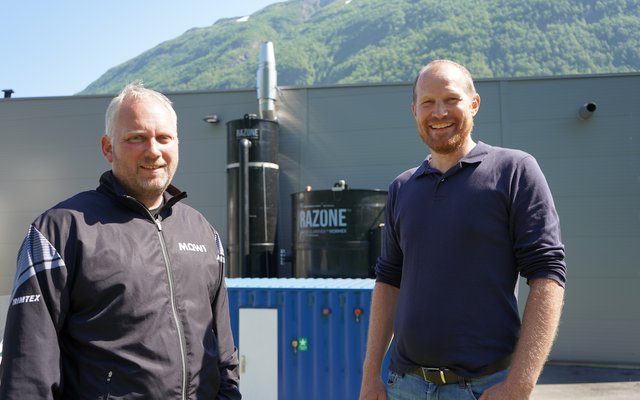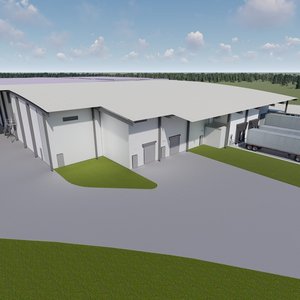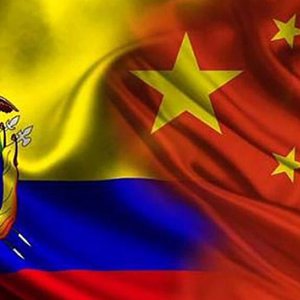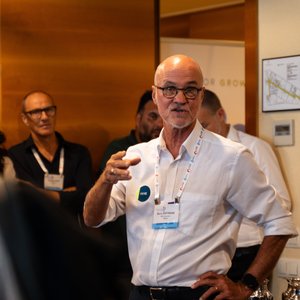The RaZone water treatment solution, developed by Norway-based Normex to provide improved water quality and fish health in recirculation aquaculture system (RAS) plants, is now being tested at the Mowi Steinsvik smolt facility in Norway. Being conducted in cooperation with scientists from the Nofima research institute, this project will report its conclusions around the end of 2020.
One of the biggest challenges when raising fish in recirculation systems is the increased quantity of particles, which can reduce water quality and thereby fish welfare as well as causing sedimentation in piping and sumps. RaZone treats water in a sidestream using a two-stage process. According to Normex, it removes microparticles, micro-organisms and micropollution and optimizes water quality, yielding clearer water, improved fish health, better biosecurity and enhanced fish welfare.
The RaZone system comprises two tanks. Raw water from the RAS is first led to a contact tank via a sidestream, where ozone – a sustainable treatment agent – is added and oxidation occurs. That clears the water and removes colorants while getting microflocculants to form. “Adding ozone causes the microparticles to clump together, making it easier to remove them,” explained Normex CEO, Stig Johansen. The water then flows to a process tank where tiny microbubbles are added to push the microparticles to the surface as a layer of scum or sludge. This is skimmed off and taken to the existing RAS sludge treatment facility, with the cleaned water returned to the tanks.
Normex installed the test facility at Mowi Steinsvik in May 2020. Preparations and testing will be pursued over the coming summer and autumn. During this period, Nofima will compare two independent smolt lines which have the same size, density and biomass, in the same Mowi Steinsvik department, with and without the use of Razone.
“Our main aim is to establish whether Razone improves water quality,” said Per Brunsvik, innovation coordinator at Nofima. “Testing will investigate various factors, such as particle quantity, nitrogen compounds and metals in the water. We’ll also be checking the fish to see whether the process affects them, with particular attention being paid to the gills.”
Normex is already experiencing great interest in its system from the fish farming industry. “We see big opportunities for RaZone. Land-based aquaculture is expanding for both smolt and grow-out fish production. A number of fish farms are now awaiting the results of this project,” said Johansen.













